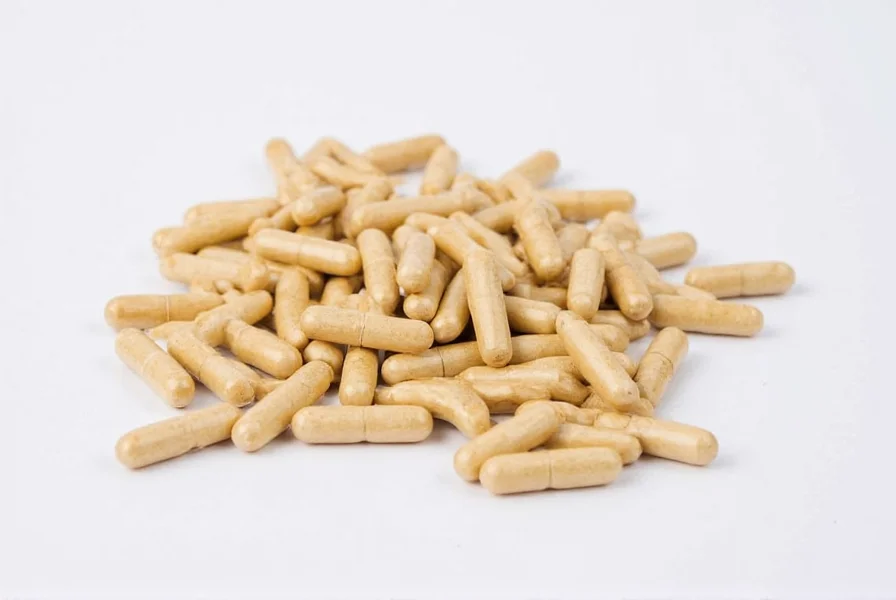Fenugreek has been used medicinally for thousands of years across Middle Eastern, Indian, and Mediterranean cultures. Modern research has validated some traditional uses while revealing new potential applications for this versatile herb. As supplement popularity grows, understanding the science behind fenugreek pills becomes increasingly important for informed decision-making.
What Exactly Are Fenugreek Pills?
Fenugreek pills contain concentrated extracts from the seeds of Trigonella foenum-graecum, an annual plant in the legume family. Unlike culinary fenugreek seeds used in cooking, supplements typically standardize active compounds like diosgenin, 4-hydroxyisoleucine, and trigonelline to ensure consistent potency. Most commercial fenugreek supplements contain 500-600 mg per capsule, with daily doses ranging from 1,000-2,000 mg depending on the intended use.
Two primary extraction methods produce different supplement types:
| Extraction Type | Active Compounds | Primary Uses |
|---|---|---|
| Whole seed powder | Natural fiber, saponins | Digestive health, cholesterol management |
| Standardized extract | 4-hydroxyisoleucine, diosgenin | Blood sugar control, lactation support |
| Defatted seed extract | Galactomannan fiber | Appetite control, digestive health |
Science-Backed Health Benefits of Fenugreek Pills
Research supports several evidence-based applications for fenugreek supplementation, though effectiveness varies by condition and individual factors.
Blood Sugar Management for Type 2 Diabetes
Multiple clinical trials demonstrate fenugreek's potential for improving glycemic control. A 2020 meta-analysis published in Phytotherapy Research reviewed 12 studies involving 728 participants with type 2 diabetes. Researchers found that fenugreek supplementation significantly reduced fasting blood glucose by an average of 17.42 mg/dL and HbA1c by 0.59% compared to placebo.
The active compound 4-hydroxyisoleucine appears responsible for enhancing insulin secretion and sensitivity. For best results, look for supplements standardized to contain at least 50% 4-hydroxyisoleucine when targeting blood sugar management.
Lactation Support for Breastfeeding Mothers
Fenugreek remains one of the most widely used galactagogues worldwide. A 2022 systematic review in Complementary Therapies in Medicine analyzed 15 clinical studies involving 1,243 lactating women. Results showed that mothers taking fenugreek supplements produced approximately 27% more breast milk than control groups within 72 hours of starting supplementation.
Most lactation specialists recommend starting with 500 mg three times daily, increasing to 6,000 mg daily if no improvement occurs after 72 hours. Note that fenugreek's maple syrup-like odor may transfer to breast milk, which some infants find appealing.
Testosterone and Libido Enhancement
Research on fenugreek for male sexual health shows promising but less conclusive results. A double-blind, placebo-controlled trial published in Phytotherapy Research followed 50 men with low libido for 6 weeks. The group receiving 600 mg daily of fenugreek extract reported significant improvements in sexual desire (34% increase), energy levels, and overall satisfaction compared to placebo.
Scientists believe fenugreek may work by inhibiting enzymes that convert testosterone to dihydrotestosterone while supporting healthy free testosterone levels. However, effects appear modest compared to pharmaceutical interventions.
Dosage Guidelines and Timing Considerations
Effective dosing depends on your specific health goals and the supplement formulation:
- Blood sugar management: 1,000-2,000 mg daily of standardized extract, divided into two doses taken with meals
- Lactation support: Start with 500 mg three times daily, increasing to 1,000 mg three times daily if needed after 72 hours
- Testosterone support: 500-600 mg daily of standardized extract, preferably taken in the morning
For optimal absorption, take fenugreek pills with food to minimize potential gastrointestinal side effects. Most research shows benefits become noticeable within 2-4 weeks of consistent use, though lactation effects may appear within 72 hours.
Safety Profile and Potential Side Effects
Fenugreek is generally well-tolerated at recommended doses, but potential adverse effects include:
- Diarrhea or digestive discomfort (most common at doses above 2,000 mg daily)
- Maple syrup-like body odor (harmless but noticeable)
- Lowered blood sugar (requires monitoring for diabetics)
- Rare allergic reactions (particularly in those sensitive to legumes)
Certain populations should exercise caution or avoid fenugreek pills entirely:
- Pregnant women (fenugreek may stimulate uterine contractions)
- Individuals taking blood thinners (potential interaction with warfarin)
- People with peanut or chickpea allergies (cross-reactivity possible)
- Those scheduled for surgery within two weeks (may affect blood sugar control)

Quality Considerations When Choosing Fenugreek Supplements
Not all fenugreek pills deliver equal benefits. Consider these factors when selecting a product:
- Standardization: Look for products specifying percentages of active compounds like 4-hydroxyisoleucine or diosgenin
- Third-party testing: Choose supplements verified by USP, NSF, or ConsumerLab for purity and potency
- Extraction method: Alcohol-based extracts typically provide higher concentrations of active compounds
- Additives: Avoid products with unnecessary fillers, artificial colors, or preservatives
Reputable manufacturers will provide batch-specific testing results upon request. Be wary of products making exaggerated claims about fenugreek's effects, as legitimate supplements follow FDA guidelines for structure/function claims.
Fenugreek Pills vs. Other Supplement Forms
While pills offer convenience and standardized dosing, other fenugreek preparations have unique advantages:
- Seeds: Whole seeds provide natural fiber but require higher consumption (1-2 tablespoons daily) and may cause more digestive upset
- Tea: Fenugreek tea offers gentler effects but inconsistent potency and lower concentrations of active compounds
- Tinctures: Liquid extracts allow for precise dosing adjustments but may contain alcohol
For most therapeutic applications, standardized pills provide the most reliable and convenient option. However, culinary use of whole seeds remains valuable for general health maintenance.

When to Consult a Healthcare Provider
While fenugreek pills are available over-the-counter, consulting a healthcare professional before starting supplementation is advisable in these situations:
- You take medications for diabetes, blood thinning, or thyroid conditions
- You have a history of hormone-sensitive conditions
- You're pregnant or breastfeeding (beyond standard lactation support)
- You experience persistent side effects after starting supplementation
Healthcare providers can help determine appropriate dosing, monitor potential interactions, and assess whether fenugreek aligns with your overall health strategy. Remember that supplements complement—but don't replace—conventional medical care for diagnosed conditions.
Final Considerations on Fenugreek Supplement Use
Fenugreek pills represent one of the better-researched herbal supplements with legitimate applications for blood sugar management and lactation support. While not a miracle cure, they offer modest but meaningful benefits when used appropriately as part of a comprehensive health strategy.
The key to successful supplementation lies in managing expectations, selecting quality products, following evidence-based dosing guidelines, and maintaining open communication with healthcare providers. As research continues to evolve, our understanding of fenugreek's mechanisms and optimal applications will undoubtedly improve, potentially revealing new therapeutic uses while refining existing recommendations.











 浙公网安备
33010002000092号
浙公网安备
33010002000092号 浙B2-20120091-4
浙B2-20120091-4